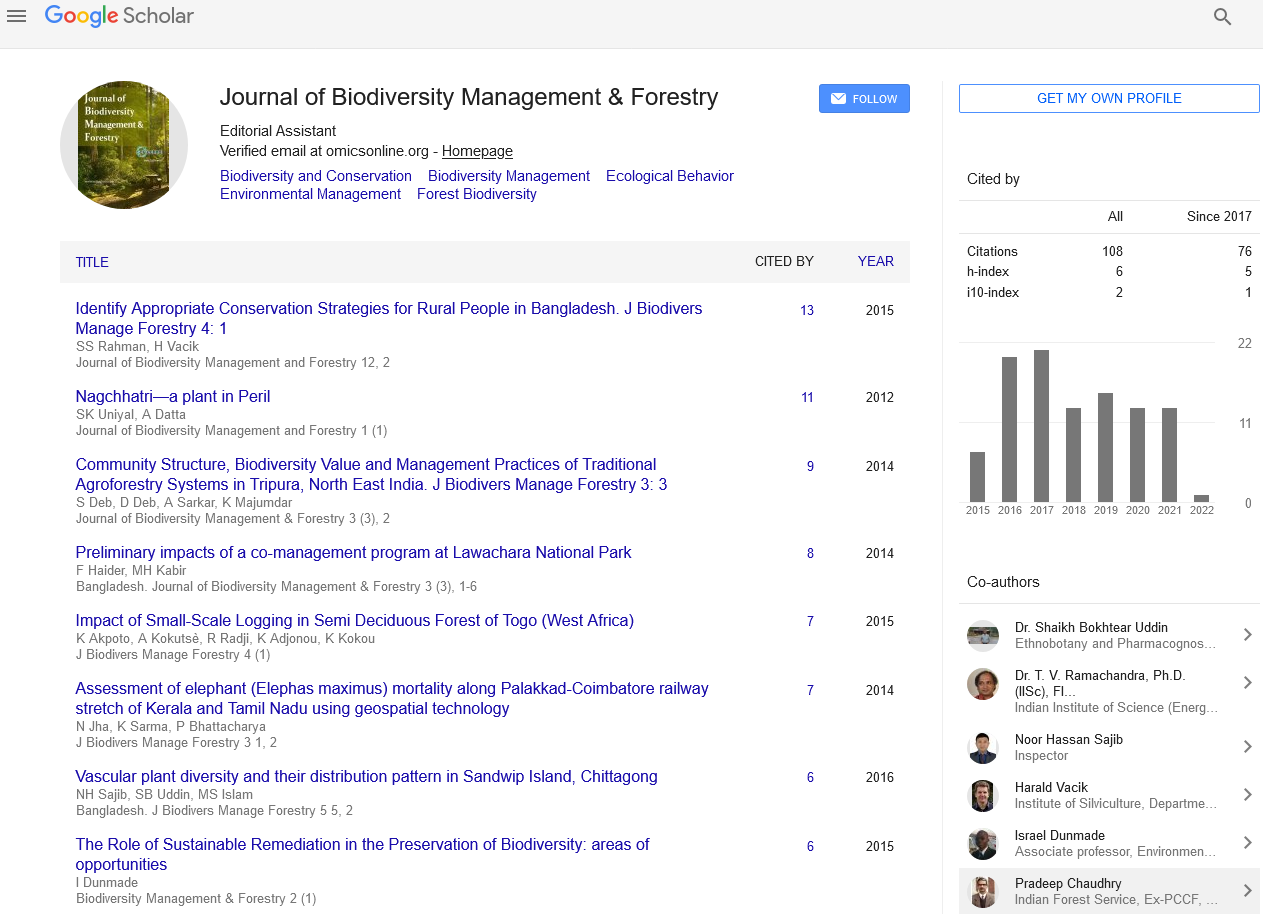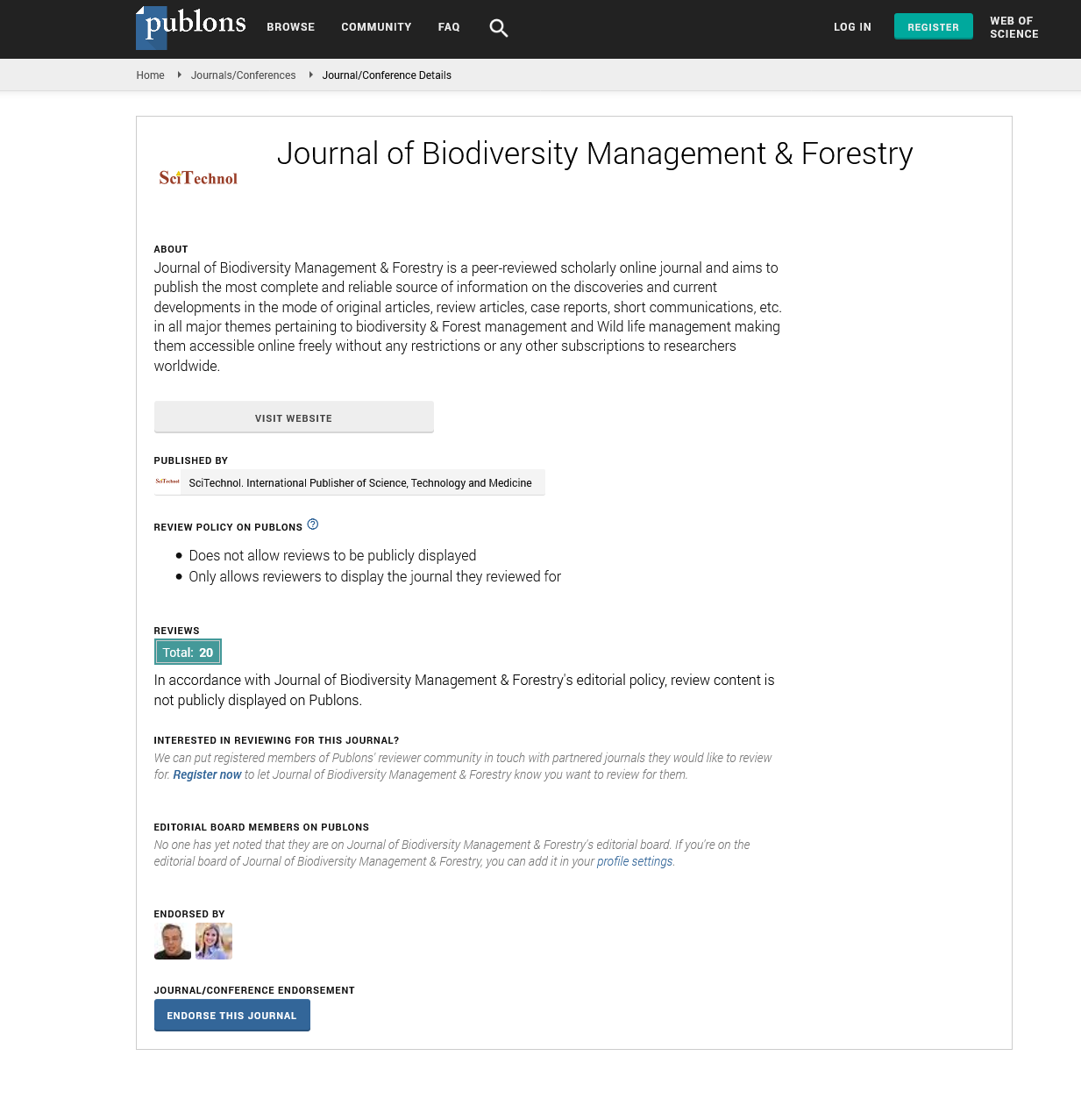Research Article, J Biodivers Manage Forestry Vol: 4 Issue: 2
Growth Performance of Uapaca kirkiana Müell. Arg Provenances in a Breeding Seedling Orchard in Malawi
| Weston Mwase1*, Lisnet Mtalika1, Daud J Kachamba1 and Kwapata MB2 | |
| 1Department of Forestry, Lilongwe University of Agriculture and Natural Resources, Malawi | |
| 2Malawi University of Science and Technology, Malawi | |
| Corresponding author : Weston Mwase Department of Forestry, Lilongwe University of Agriculture and Natural Resources, Bunda Campus, P.O. Box 219 Lilongwe, Malawi Tel: (265)1 277260; Fax: (265) 1277364 E-mail: wmwase@ bunda.luanar.mw, westmwase@yahoo.co.uk |
|
| Received January 05, 2015 Accepted March 09, 2015 Published March 12, 2015 | |
| Citation: Mwase W, Mtalika L, Kachamba DJ, Kwapata MB (2015) Growth Performance of Uapaca kirkiana Müell. Arg Provenances in a Breeding Seedling Orchard in Malawi. J Biodivers Manage Forestry 4:2. doi:10.4172/2327-4417.1000141 |
Abstract
Growth Performance of Uapaca kirkiana Müell. Arg Provenances in a Breeding Seedling Orchard in Malawi
The population of Uapaca kirkiana Müell. Arg an indigenous fruit tree in southern and eastern Africa continues to decline due to deforestation, forest fragmentation and wildfires. Domestication of the fruit tree has been a priority to increase its genetic diversity and improve livelihoods of small scale farmers. The process of domestication of trees requires knowledge of ecological adaptive traits and intra-specific variation. A breeding seedling orchard comprising seven provenances was established at Bunda in Lilongwe the capital of Malawi in 2006. Growth performance was assessed through measurements in tree height, diameter at breast height (dbh), root collar diameter, number of branches and number of flowers for eight years. Results show that there are statistical significant differences (P ≤ 0.05) in height, diameter at breast height, root collar diameter among the seven provenances. Dzalanyama had the highest mean value for height and diameter at breast height ranging from 1.8 to 3.9 metres and 3.0 to 8.9 centimetres respectively, however a local provenance collected from within 5 kilometre radius of the test site showed the least growth performance suggesting that use of a local provenance does not always guarantee the best performance. Height was found to have high heritability values ranging from 0.31 to 0.43 while number of branches and number of flowers didnot appear to be under strong genetic control with heritability values of 0.12 and 0.08 respectively. The values for growth and genetic traits are from one site that could overestimate heritability values. Selection of provenances for tree improvement should be based on a combination of factors including seed quality and performance of provenances in multi-location trials.

